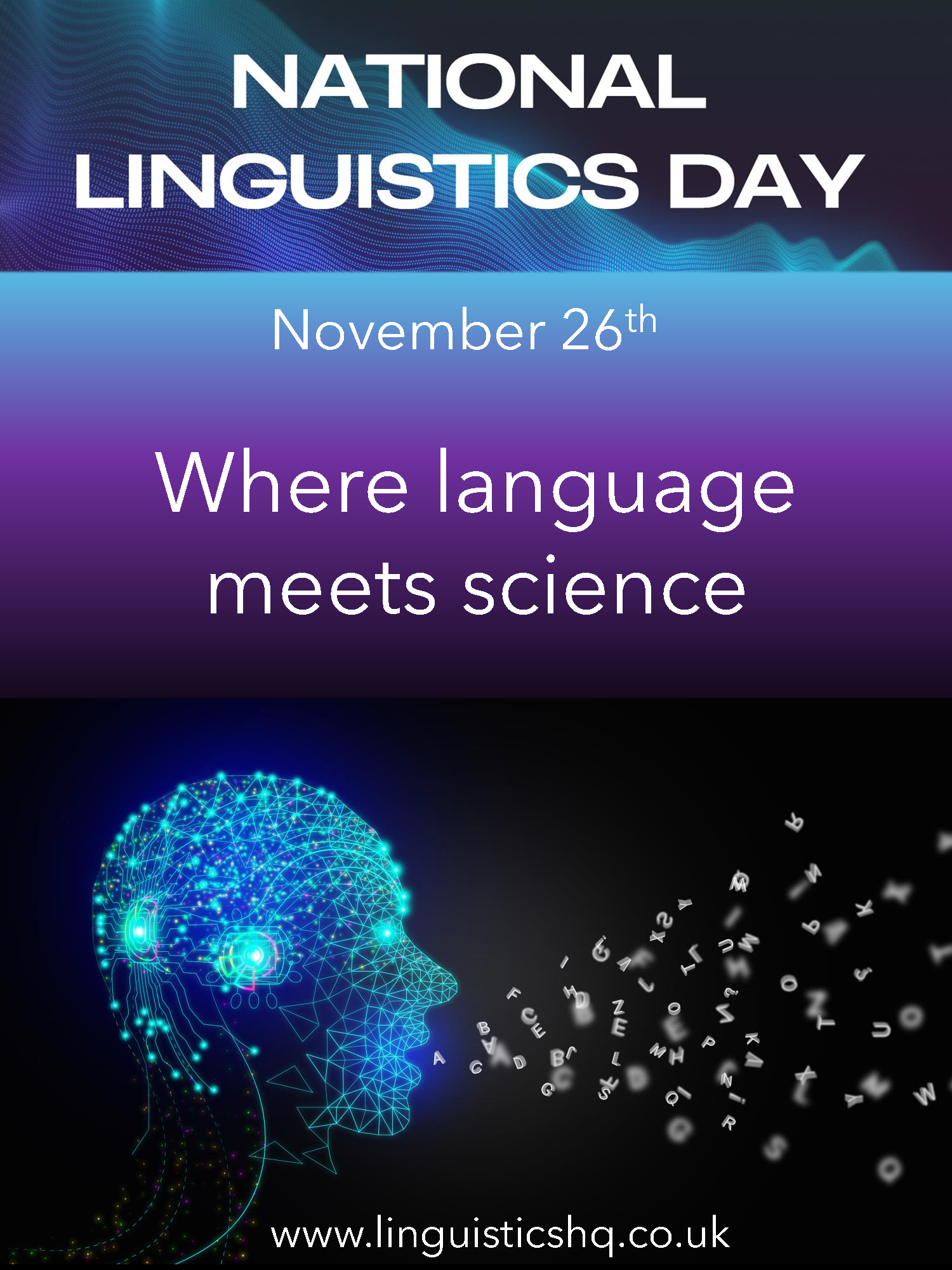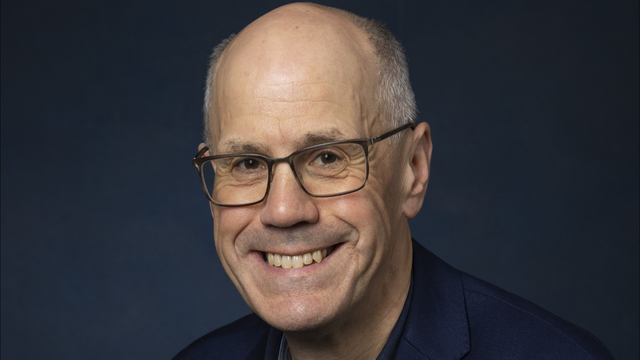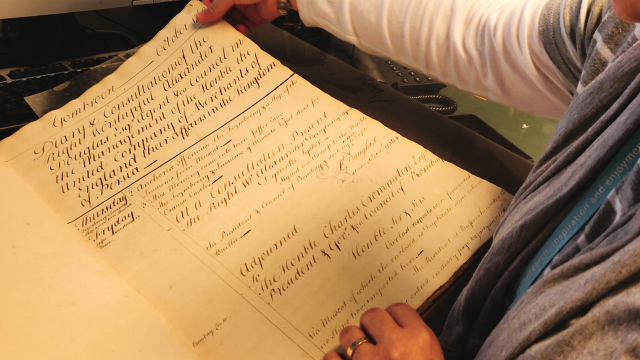-
QUALIFICATIONS
- For Linguists Worldwide
- For UK Public Services
- Preparation
- Policies & Regulation
-
MEMBERSHIP
- Join CIOL
- Membership grades
- NEW for Language Lovers
- Chartered Linguist
- Already a member?
- Professional conduct
- Business & Corporate Partners
-
ASSESSMENTS
- For Second Language Speakers
- English as a Second Language
-
EVENTS & TRAINING
- CPD, Webinars & Training
- CIOL Conference Season 2025
- Events & Networks
- CIOL Mentoring
-
NEWS & VOICES
- News & Voices
- CIOL eNews
- CIOL Awards
- The Linguist
- Jobs & Ads
-
RESOURCES
- For Translators & Interpreters
- For Universities & Students
- Standards & Norms
- CIOL & AI
- All Party Parliamentary Group
- In the UK
- UK Public Services
- Find-a-Linguist
National Linguistics Day

Showcasing the science of language
By Rebecca Mitchell
National Linguistics Day is a new focal point in the year to get people thinking, talking and learning about the science of language. It is part of Linguistics HQ, a broader initiative aimed at sparking curiosity about linguistics and helping to integrate it into education.
The idea for National Linguistics Day arose from my extensive experience of delivering educational talks on languages and linguistics to students, professionals and language aficionados. The enthusiasm they have generated among diverse audiences has indicated a strong demand for dialogue on this subject and for a platform for sharing knowledge. As an affiliated lecturer in French and linguistics at the University of Cambridge and a modern languages teacher in secondary education, I have a dual perspective on how language science could be integrated into the education system in such a way as to inspire a new generation of learners.
Linguistics is something we are all innately aware of, and it is the explanation for all our communicative behaviour. It can give a fresh, thought-provoking and relevant perspective on language and society. It can even bring about social and political change, and yet it remains one of the more elusive scientific disciplines. National Linguistics Day aims to put linguistics on an equal footing with other sciences which are recognised by means of awareness days. It is time to make linguistics accessible and relatable to everyone and to emphasise its universal, cross-disciplinary relevance. Whether we are interested in geography, psychology, politics, or the mechanics of language itself, linguistics affords us insights into all these areas and more, providing a rich and holistic perspective. Studying linguistics broadens a learner’s general knowledge and sociocultural awareness, while equipping them with transferable skills which are relevant to many professional fields. It can help individuals from diverse backgrounds to feel recognised and gain a sense of pride in their heritage through language, which is particularly important in contemporary Britain. Acknowledging the significance of African languages, for example, which are largely underrepresented in European scholarship, is part of the wider conversation about decolonising education and society and addressing our imperial past.
Linguistics HQ aims to offer a range of products to connect people of all ages and backgrounds with the science of language. These will include a general interest podcast, educational resources for students starting secondary school, and enrichment materials for older students considering A-levels or university courses. The initiative also seeks to develop cross-disciplinary educational resources to demonstrate the universal relevance of this broad and diverse field, encouraging both educators and learners to see linguistics as an essential tool for understanding the world around them. For more information, please visit www.linguisticshq.co.uk.
More
The Chartered Institute of Linguists (CIOL), Incorporated by Royal Charter, Registered in England and Wales Number RC 000808 and the IoL Educational Trust (IoLET), trading as CIOL Qualifications, Company limited by Guarantee, Registered in England and Wales Number 04297497 and Registered Charity Number 1090263. CIOL is a not-for-profit organisation.








